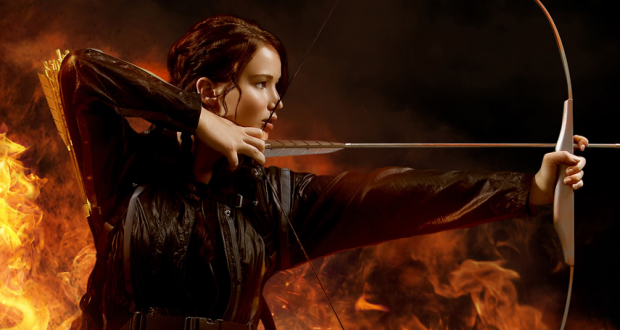With the upcoming release of The Hunger Games: Catching Fire at the end of November, buzz is once again gathering around the franchise, originally a trilogy of books written by Suzanne Collins. In September, the first book of the The Hunger Games series was discussed on Jennifer Byrne’s ABC show, Books that Changed the World—alongside titles including Darwin’s The Origin of Species and Homer’s The Iliad.
Why are these novels, and their cinematic adaptations, so powerful? The parallels between The Hunger Games’ setting of Panem and that of our own world are easy to draw; the exploitative relationship between the wealthy Capitol and its impoverished districts hits uncomfortably close to home. The media saturation the citizens of Panem experience feels familiar too, as does the way that media is used to reinforce, rather than challenge, the unjust social order.
The Hunger Games trilogy revolves around the Hunger Games themselves, an annual “celebration” during which the Capitol takes a male and a female teenager from each of the 12 districts as tribute. These teens are then placed in an arena to fight to the death in a glitzy, nationally televised event. Unlike our Olympic Games, which celebrate the ideal of friendly competition, the Hunger Games are designed to remind the districts of their total subjugation to the Capitol.
It is a concept that initially horrifies us, but the viewer of the new Hunger Games film is doing what the characters in the movie are doing: watching the Hunger Games. It is an act that feels innocent enough, but which makes the viewer a participant in the corrupt system of oppression depicted in the story. The Hunger Games series is powerful because it reminds us that we are no different to an ordinary citizen of the Capitol; they still think of themselves as essentially good people, but they are implicated in the injustice that makes the Games a reality.
What are our real-world parallels? It’s a question to which real-world audiences should give attention.
Rohan Salmond
Cross-platform editor
 JourneyOnline
JourneyOnline







